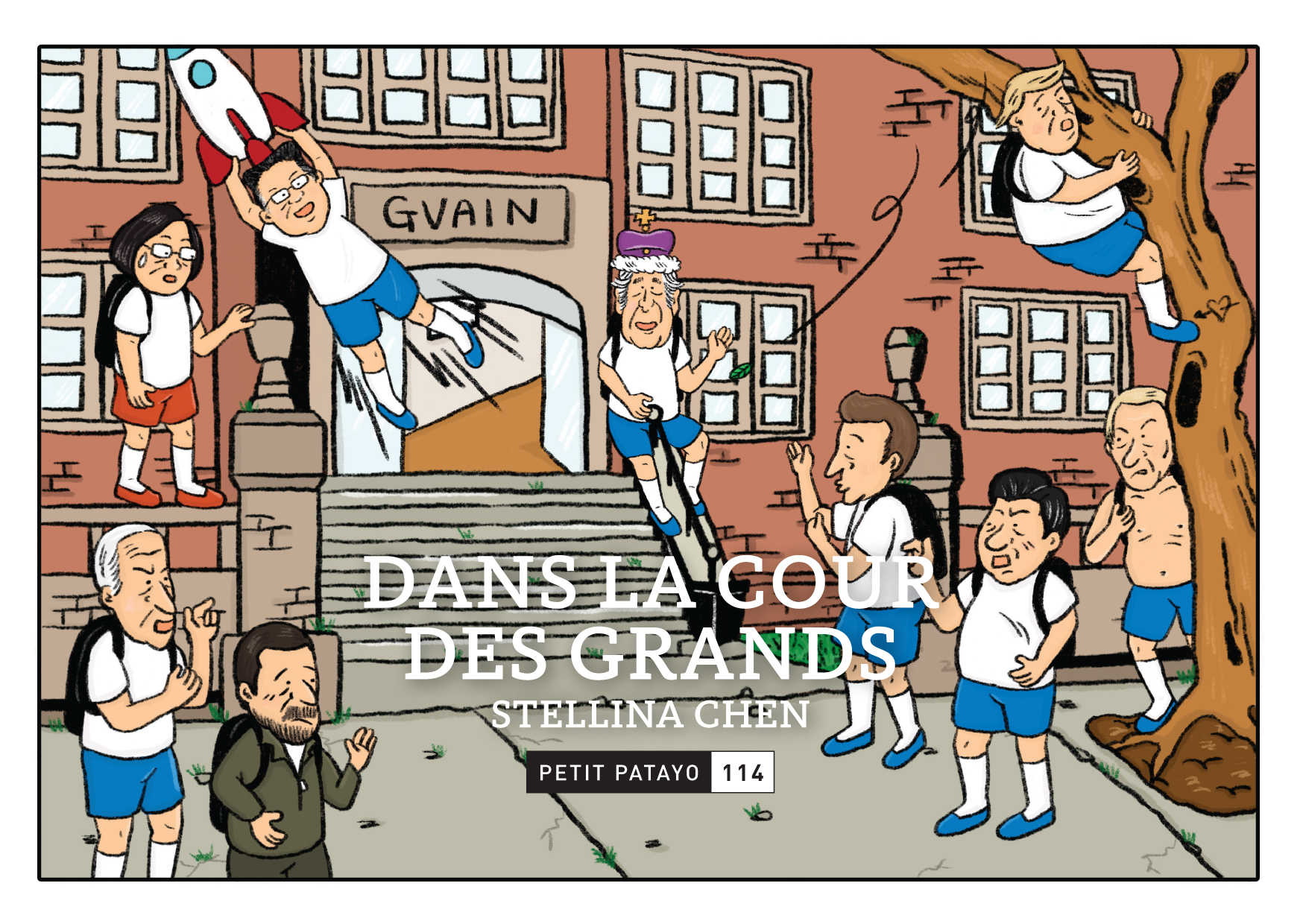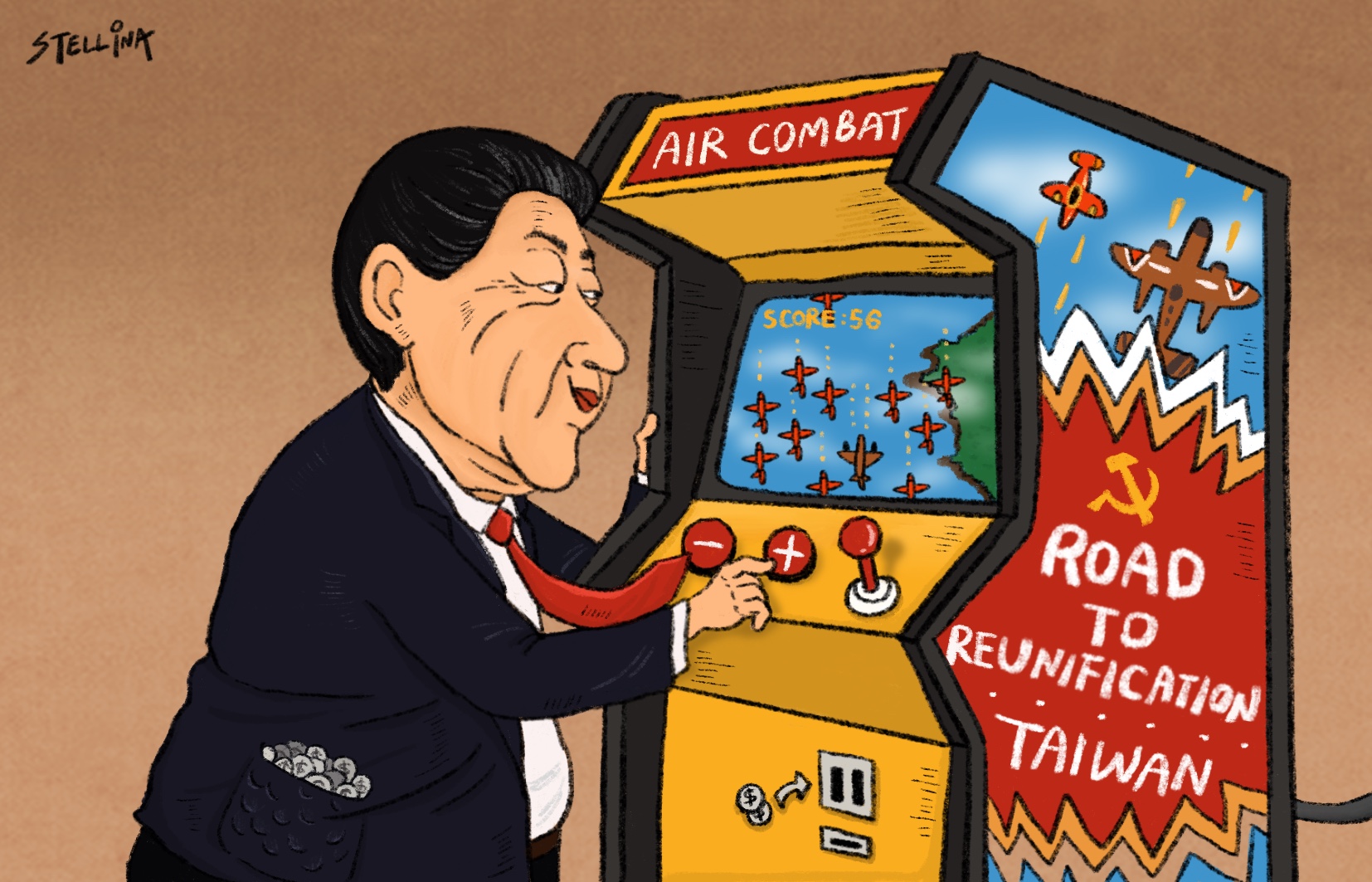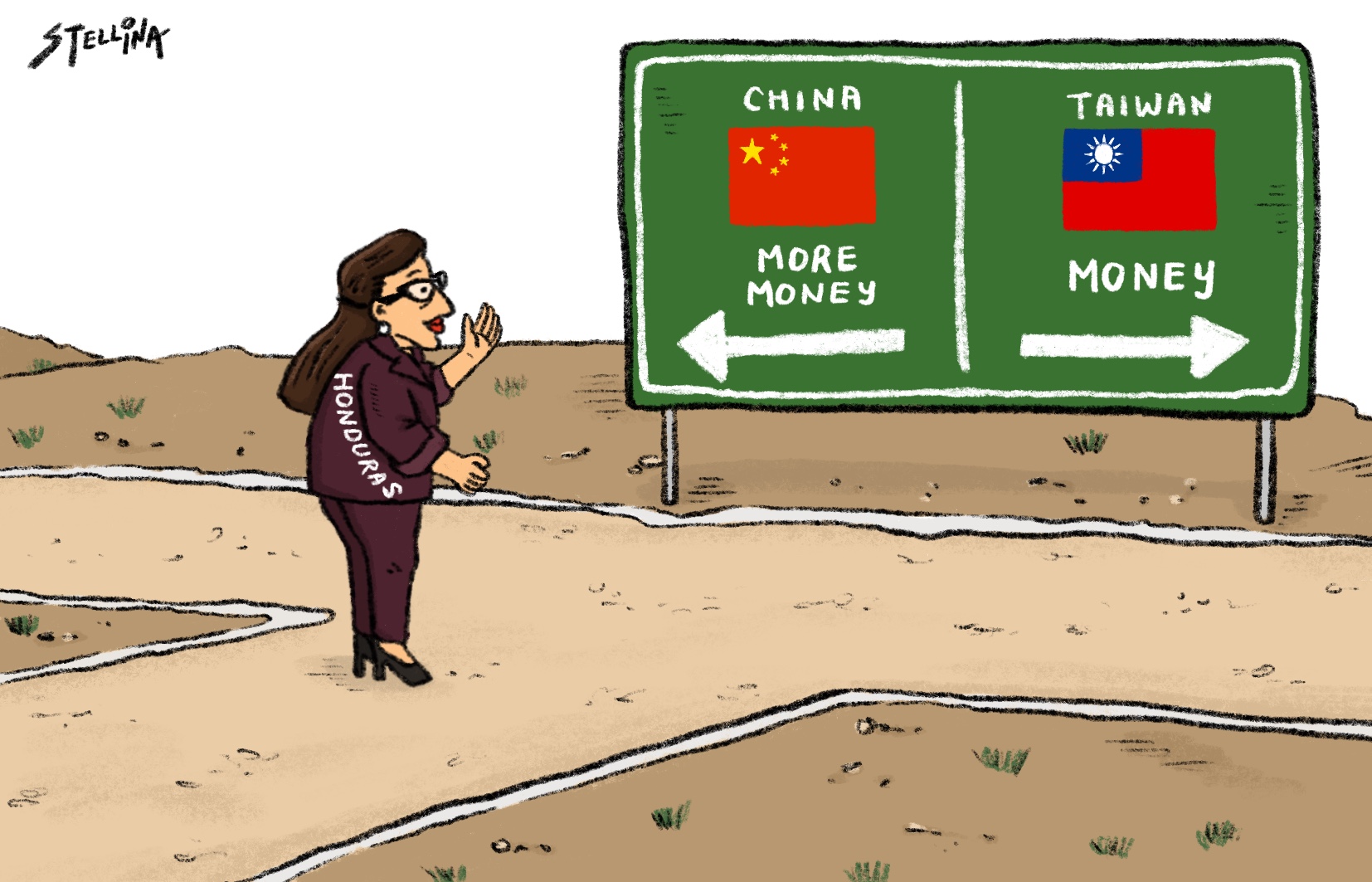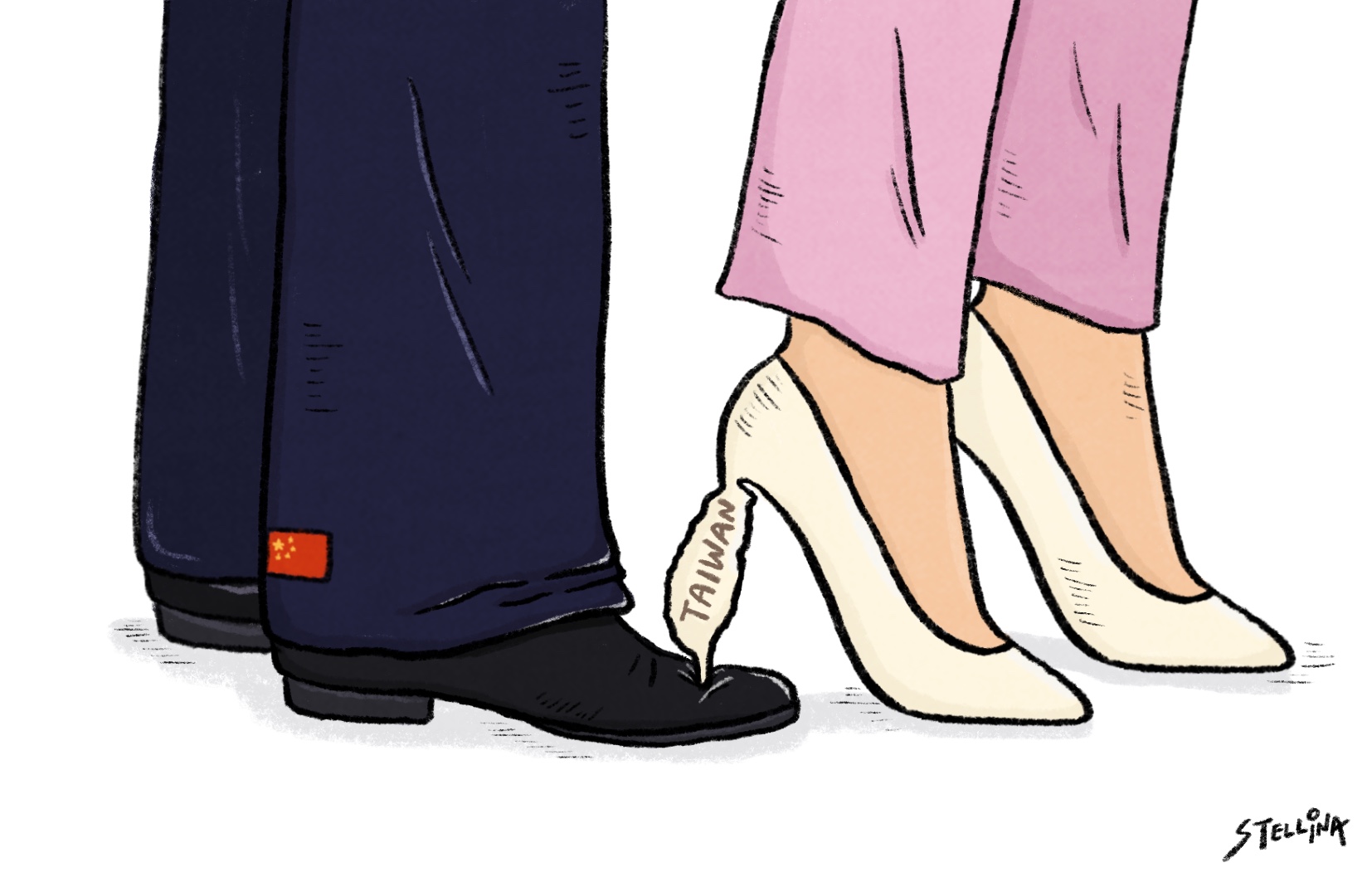by Brian Hioe
語言:
English
Photo courtesy of Stellina Chen
New Bloom editor Brian Hioe interviewed cartoonist Stellina Chen about her new book, “Dans la cour des grands,” and her background as a cartoonist. “Dans la cour des grands” will be released in October.
Brian Hioe: Could you first introduce yourself for readers who might not know you?
Stellina Chen: I’m a political cartoonist from Taiwan, I draw for many media in Taiwan, Hong Kong, and Europe, now mostly in France. I also drew two comic books, the first one was En quête de racines which was about my family and how my grandparents fled from China during the civil war in 1949 and established a new life here in Taiwan. I have another one, Dans la cour des grands, coming up in October. In this book, I put together a bunch of world leaders in school and we can see how they slowly destroy the school based on how our world is being dominated by these politicians in a ridiculous way.
 Photo courtesy of Stellina Chen
Photo courtesy of Stellina Chen
BH: What drew you to becoming specifically a political cartoonist?
SC: I majored in International Relations in university, so reading international news is just a habit for me. As for drawing, it has always been there. I spent a lot of time in an art studio when I was a kid, that was where I learned how to draw with paintbrush and watercolor. So it’s natural for me to combine my two passions and just start to draw.
I’m also very interested in social justice issues and this appears in my work very often. But I think the part I love the most is how cartoons can portray a complex message through a simple image with satire and humor.
 Photo courtesy of Stellina Chen
Photo courtesy of Stellina Chen
BH: You’ve more recently transitioned to political cartoons about not just Taiwan, but a number of other political contexts. Could you talk a bit about that? What has been similar and what has changed?
SC: I joined Cartooning for Peace, Cartoon Movement, and other international organizations for editorial cartoonists in 2019. After that, I started to work with several international media which led to the change of topics of my cartoons.
I think the biggest change would be from the local context to the more international one, this also includes different audiences. I have to be mindful of cultural references and interests of different audiences whether they would be able to understand the drawing or not. Sometimes I would have to spend a lot of time digesting and understanding the news or geopolitics in places that I’m not the most familiar with, like recently the coup d’etat in Africa.
 Photo courtesy of Stellina Chen
Photo courtesy of Stellina Chen
Another interesting struggle for me would be how to present Taiwan in an international media. A small dragon as opposed to a big dragon “China” seems to be a bit stereotypical and cut off from reality nowadays. A sweet potato would be perfect for a Taiwanese audience but, for an international audience, the notion is not as widespread as inside the island. However, if I put a plate of fish in between China and the United States, both fighting for it, most likely people would guess that the fish is Taiwan.
BH: Could you talk a bit about the new book? What is the premise?
SC: My new comic book will be published by Editions Patayo and is called Dans la cour des grands (French) which can be roughly translated as “The Big League” in English. It will be out on October 6 in France. The comic book belongs to the Petit Patayo collection which has taken form from Lianhuanhua 連環畫, a type of pocket-size comic book popular in China in the 20th century. The story is about world leaders being portrayed as elementary school kids going to school. On the first day of school, the teacher announces the election for new class president. In this 92-page comic book, you will see how the kids interact with each other based on the geopolitics of the real world.
 Photo courtesy of Stellina Chen
Photo courtesy of Stellina Chen
BH: Who do you hope reads the book? What do you hope that they take away from it?
SC: I imagine people who are interested in geopolitics would enjoy this book, although the story is fictional it is entirely based on current events. There are also quite a few easter eggs hidden in each frame that a political junkie would smile upon. For readers who didn’t follow the events, it would just be another funny and ridiculous comic strip. What I hope for them is just to have a laugh after reading it, no matter how pessimistic the ending (of the book) is or our future may seem like, humor is one of the best remedies.
 Photo courtesy of Stellina Chen
Photo courtesy of Stellina Chen
BH: More broadly, what do you see your political cartoons as fulfilling a need for?
SC: My political cartoons are essentially visual commentaries of my own opinion on a political situation. In a democratic society, political cartoons can serve as a tool to promote democracy and to provoke thoughts and discussions. Although Taiwan does not have a long history of cartooning, I would love to see more cartoons being used as political commentary in newspapers, magazines, or even just online especially in a time like this. I certainly hope mine could be a part of it.
 Photo courtesy of Stellina Chen
Photo courtesy of Stellina Chen
BH: In conclusion, what would you have to say to readers the world over–in Taiwan and elsewhere?
SC: A picture is always worth a thousand words. I hope my cartoons could pull at your heart but if not I wish at least it could bring a smile to your face.

